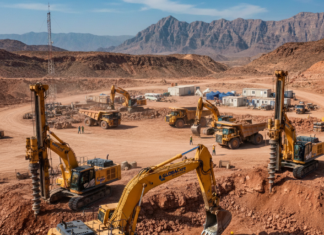There is an election around the corner we hear. This Thursday all of the country’s registered voters will have the opportunity to choose their elected representatives for both the federal and provincial legislatures.
It has been an arduous road to the polls paved with dubious intentions. One worries for the state of democracy in the country. Perhaps the largest political party in Pakistan has been blatantly targeted, stripped of its electoral symbol, and its chairman incarcerated in what can only be described as a judicial kamikaze campaign. The resulting atmosphere of fear and disillusionment has made this election one of the dullest in memory.
Perhaps nothing illustrates this better than the half-hearted campaigns that major political parties have been running. The PML-N didn’t bother to start campaigning until a couple of weeks ago and were equally lazy in releasing a manifesto. Nawaz Sharif’s rhetoric has focused more on personal grievances than pressing problems and his party’s manifesto has offered little insight into how he plans to fix an ailing economy. The PPP’s campaign has been similarly lukewarm, and the vigour that marked the 2008, 2013 and 2018 elections is direly missing.
The slow campaigning is in fact one of the many topics Profit’s team has covered in this week’s special edition. There is surprisingly very little to do on election day for a business and economics publication. Political analysis is best left to the political beat hacks. But the lead-up to a national election is a flurry of economic activity and possibilities.
Our main story for this special issue explores what a civil debate about these possibilities might look like. In this story, Profit’s former managing editor pens down what a conversation between Pakistan’s political leadership (with some helpful insights from other quarters) might look like. In the absence of pointed, technical conversations in the political sphere this might be the closest we get to an electoral debate.
There is more of course. Another story goes in-depth about how campaign financing works in Pakistan, the limits that the Election Commission of Pakistan (ECP) places on candidates in terms of spending, and how these are circumvented. We also look at the absence of local governments in Pakistan and how this missing third tier of democracy is robbing the electorate of representation that matters the most in our day-to-day lives.
Then there are more pressing questions about this election in particular, that our reporters have tried to shed some light on. Heading into the polls one might recall that Anwar ul Haq Kakar has been Prime Minister for six months and Mohsin Naqvi has been Chief Minister of Punjab for over a year. These are terms far beyond their constitutionally mandated limits. Both judicial and political leaders have turned a blind eye to this unfortunate new precedent. The instrument of this delay was first the insistence of the outgoing government that a new census had to be conducted. Before this, the government had also tried to claim they did not have enough money to conduct the polls.
So how much do elections cost the national exchequer exactly? Who pays? What are the costs associated? And why was it so important to conduct this census so close to the election? Does it serve any purpose aside from marking constituencies? And how is it conducted?
These are all questions we try to answer. The coming weeks will mark an important moment in the country’s history as a new government takes charge and charts the same old problems that many others have tried to tackle in the past. But the mood of the nation seems amiss. Elections are supposed to be a moment of hope.
The tides of history have famously changed with the power of the ballot. It was the election of FDR as President that marked the end to the depression. Churchill’s elevation to office was a turning point for Britain in the second world war. Sheikh Mujeeb’s victory in Pakistan marked the start of the labour pains of Bangladesh.
All of that hope seems missing in this election. Already statisticians and pollsters are predicting a low turnout and the electorate seems disillusioned.The country’s decision makers would do well to remember that an informed and empowered electorate has time and again been proven the best answer not just to nation building, but also to fixing economic woes.
Besides, it isn’t as if we’ve done particularly well without a functioning democracy. Might as well give it a shot?








Thanks for sharing a real world.